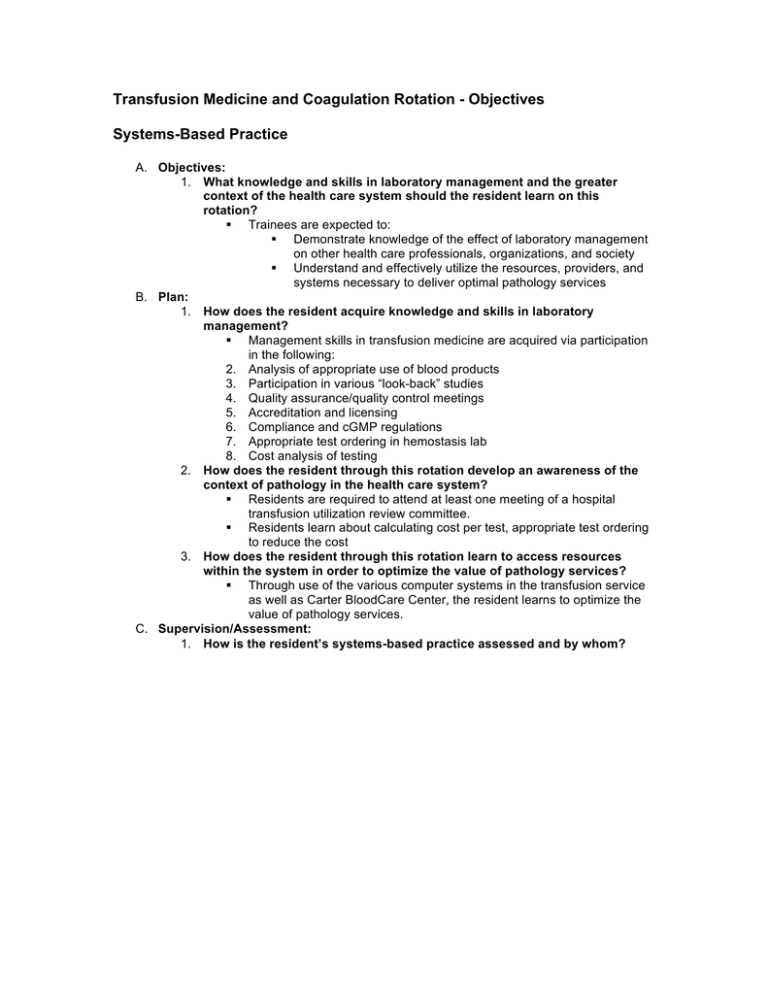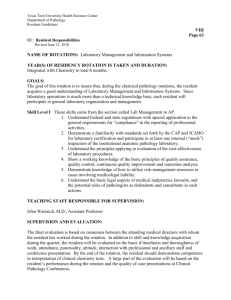Transfusion Medicine and Coagulation Rotation - Objectives Systems-Based Practice
advertisement

Transfusion Medicine and Coagulation Rotation - Objectives Systems-Based Practice A. Objectives: 1. What knowledge and skills in laboratory management and the greater context of the health care system should the resident learn on this rotation? § Trainees are expected to: § Demonstrate knowledge of the effect of laboratory management on other health care professionals, organizations, and society § Understand and effectively utilize the resources, providers, and systems necessary to deliver optimal pathology services B. Plan: 1. How does the resident acquire knowledge and skills in laboratory management? § Management skills in transfusion medicine are acquired via participation in the following: 2. Analysis of appropriate use of blood products 3. Participation in various “look-back” studies 4. Quality assurance/quality control meetings 5. Accreditation and licensing 6. Compliance and cGMP regulations 7. Appropriate test ordering in hemostasis lab 8. Cost analysis of testing 2. How does the resident through this rotation develop an awareness of the context of pathology in the health care system? § Residents are required to attend at least one meeting of a hospital transfusion utilization review committee. § Residents learn about calculating cost per test, appropriate test ordering to reduce the cost 3. How does the resident through this rotation learn to access resources within the system in order to optimize the value of pathology services? § Through use of the various computer systems in the transfusion service as well as Carter BloodCare Center, the resident learns to optimize the value of pathology services. C. Supervision/Assessment: 1. How is the resident’s systems-based practice assessed and by whom?

